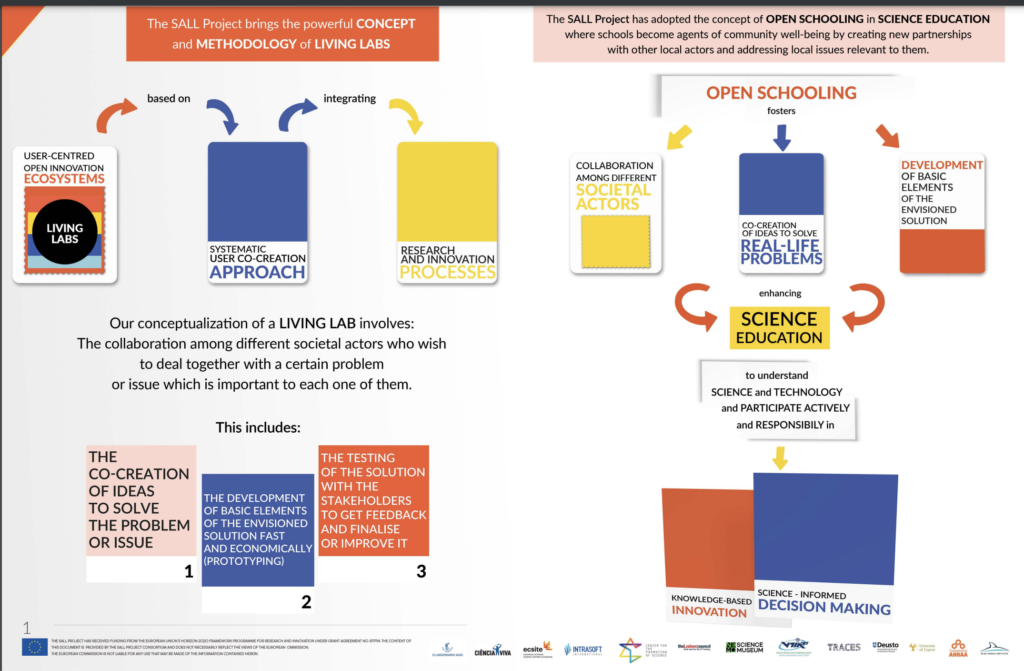Schools as Living Labs

Schools as a Living Lab Approach
Living Labs are open innovation ecosystems that operate in real-life settings. It fosters iterative processes throughout the creation of situations towards sustainable impact.
The concept of Living Labs was first introduced as a collaborative research approach focusing on user-centred and real-life experimentation. Originating in the early 2000s, Living Labs was created to foster innovation through the active involvement of stakeholders in the co-creation process. This methodology was embraced by the European Network of Living Labs (ENoLL) and has been widely adopted across various sectors, including education.
In education, Living Labs have been integrated to promote experiential learning and foster collaboration between students, teachers, researchers, and the community. Schools utilising the Living Labs approach transform their environments into dynamic learning spaces where real-world challenges are addressed through participatory research and problem-solving activities. This method supports innovative educational practices such as Inquiry-Based Learning (IBL) and Project-Based Learning (PBL), providing students with hands-on experiences that enhance their problem-solving skills and engagement with the curriculum.
One notable example is the “Schools As Living Labs” project, which aims to integrate Living Labs into school curricula to enhance the learning experience and promote sustainability education. By adopting this approach, schools create opportunities for students to engage in meaningful projects that address real-world issues, thereby making education more relevant and impactful.
The integration of Living Labs into education systems is important for school heads and teachers because it encourages a more interactive and collaborative learning environment. It supports the development of critical thinking, creativity, and practical problem-solving skills among students. Additionally, it fosters a culture of continuous innovation and improvement within educational institutions, aligning with modern educational goals and preparing students for the complexities of the future workforce.
By adopting Living Labs, schools can provide a more holistic and engaging educational experience that not only meets academic standards but also addresses broader societal challenges. This approach aligns with the need for education systems to evolve and adapt to the changing demands of society, ensuring that students are equipped with the skills necessary to thrive in a rapidly changing world (Living Labs, an answer to Europe’s biggest Challenges).
Find a list of inspiring practices in the (PORTFOLIO OF SCHOOLS AS LIVING LABS PROJECTS)
1 Comment
Submit a Comment
You must be logged in to post a comment.


This text about Living Labs highlights an innovative and much-needed educational approach today. The idea of transforming schools into living learning spaces connected to the community, where students actively participate in solving real-world problems, is extremely motivating. This not only makes learning more practical and meaningful but also prepares young people to face complex future challenges with creativity, critical thinking, and collaboration.
In my opinion, the role of the teacher becomes even more crucial in this scenario, as they move from being mere transmitters of knowledge to facilitators and mentors who guide students through the inquiry process and practical application of what they learn. Furthermore, this model encourages continuous learning and a culture of innovation within the school, which is essential to keep up with rapid social and technological changes.
Adopting Living Labs in education is therefore a golden opportunity for schools to become active agents of social and environmental transformation, shaping citizens who are more aware, responsible, and prepared to contribute positively to society.